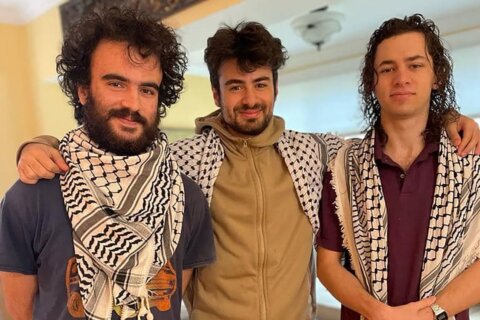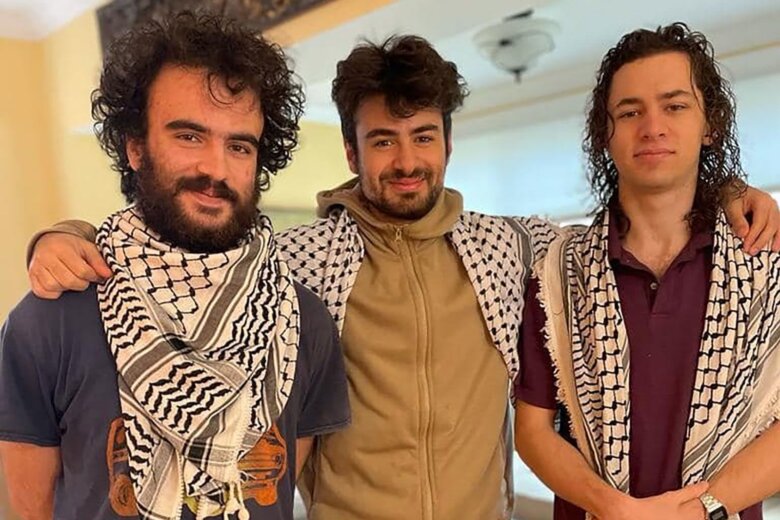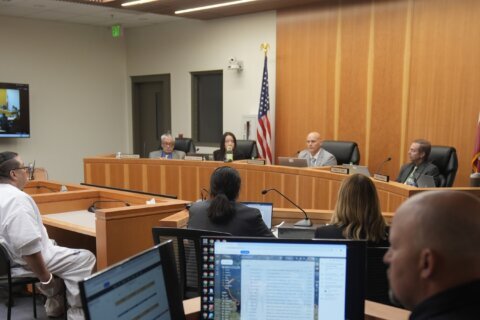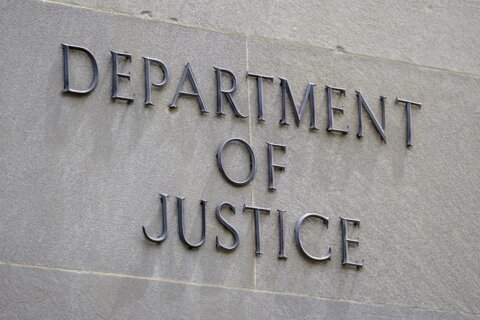
(CNN) — After police say he repeatedly taunted an Arab immigrant food cart worker in his Manhattan neighborhood, former Obama-era National Security Council official Stuart Seldowitz was arrested last week by the New York Police Department. He now faces hate crime and aggravated harassment charges.
The videos of Seldowitz’s rants — which went viral — were despicable. The former government official made vile anti-Muslim comments while jeering at the Egyptian food cart worker about the Israel-Hamas war with remarks such as, “If we killed 4,000 Palestinian children, you know what? It wasn’t enough!”
Seldowitz, who has pleaded not guilty, told a local New York paper that he regretted the incident, saying, “in the heat of the moment, I said things that probably I shouldn’t have said.” But the “heat of the moment” defense rings hollow given Seldowitz allegedly returned to the food cart several times over a two-week period to spew hate.
Tragically, these types of disturbing incidents have skyrocketed since the Israel-Hamas war began on October 7. The Anti-Defamation League reported a 388% increase in anti-Jewish incidents in the weeks after the war began compared to the same period last year.
Jewish Americans have seen their places of worship defaced alongside an alarming number of threats against and attacks on Jewish students on college campus. One deeply concerning incident took place at Cornell University when messages vowing to “shoot up” a Jewish dining hall and stab Jews on the campus were posted online. A student was arrested and accused of being behind the threats and has not entered a plea in his first court appearance.
Just as concerning, the Council on American-Islamic Relations (CAIR) has documented an “appalling” rise in reported anti-Arab and anti-Muslim bias incidents in the month following October 7. Overall, CAIR fielded a 216% increase in requests for help and reported bias incidents as compared to 2022.
Alarmingly, it appears one such horrific incident may have occurred on Saturday in Burlington, Vermont, when three Palestinian students were shot. Two are US citizens and the third is a legal resident. And two of them were wearing the traditional Arab scarf known as a keffiyeh, according to local police. The Arab Anti-Discrimination Committee noted in a press release that they were also speaking Arabic.
Thankfully, the three students survived the shooting, but two of them were admitted to the intensive care unit and one “has sustained very critical and serious injuries,” according to the ADC. The story is still developing, and police say they are currently looking into the white male shooter’s motive.
Tragically, however, 6-year-old Palestinian American Wadea Al-Fayoume didn’t survive his stabbing by a man who allegedly targeted the boy for his Muslim faith. He was charged with murder and two counts of a hate crime, among other charges, and he has pleaded not guilty.
The question is: What can each of us do to counter the hate and make it clear that we won’t allow bigotry to become normalized against any community? One of the best responses is what we saw in New York City after Seldowitz’s hate-filled rants got widespread attention: Elected officials and neighbors came together to stand with the 24-year-old Egyptian food cart worker, Mohamed Hussein, who was subjected to the rants.
Even before Seldowitiz was charged, Manhattan Borough President Mark Levine said on social media: “This Islamophobic bigotry is absolutely reprehensible. No one in this city should be subjected to this venom.”
But it was the response of people in the neighborhood — which deserves far more media attention — that was truly moving. As CBS New York reported, “what happened at the food cart has seemingly only brought people together.” One of the food cart workers, Bahaa Hassan, told CBS: “We have mostly Jewish customer in this building. [Two customers] made cake for us last night.”
It wasn’t long before people from the neighborhood set up a table next to the food cart in an effort to encourage people to sit, eat and talk together. As Upper East Side resident Stephanie Merabet told CBS about the workers, “They’re really wonderful people and they care about the community that they’re in, and they certainly don’t deserve this.”
These actions send a powerful message that we will not allow hate to go unchallenged. In this vein, my longtime friend Max Brooks — author of “World War Z,” “The Zombie Survival Guide” and more – asked me to join him in making a short video to counter hate against Jews, Arabs and Muslims. Unbeknownst to us at the time, we filmed this video last weekend in the very neighborhood where Seldowitz had been taunting the Arab food cart worker.
Max and I have often been told that we look similar. There is good reason for that. We are both half-Italian and half-Semitic. In Max’s case, his Semitic half is Jewish — from his father, Mel Brooks — while my Semitic heritage comes from my late Palestinian father, Abdul. (And yes, Arabs and Jews are both Semites!)
Each of us can — and must — play a role in countering hate. In a nation as populous as the United States, there will always be some amount of bigotry. It’s how we respond to the hate that matters.
The-CNN-Wire
™ & © 2023 Cable News Network, Inc., a Warner Bros. Discovery Company. All rights reserved.








